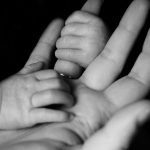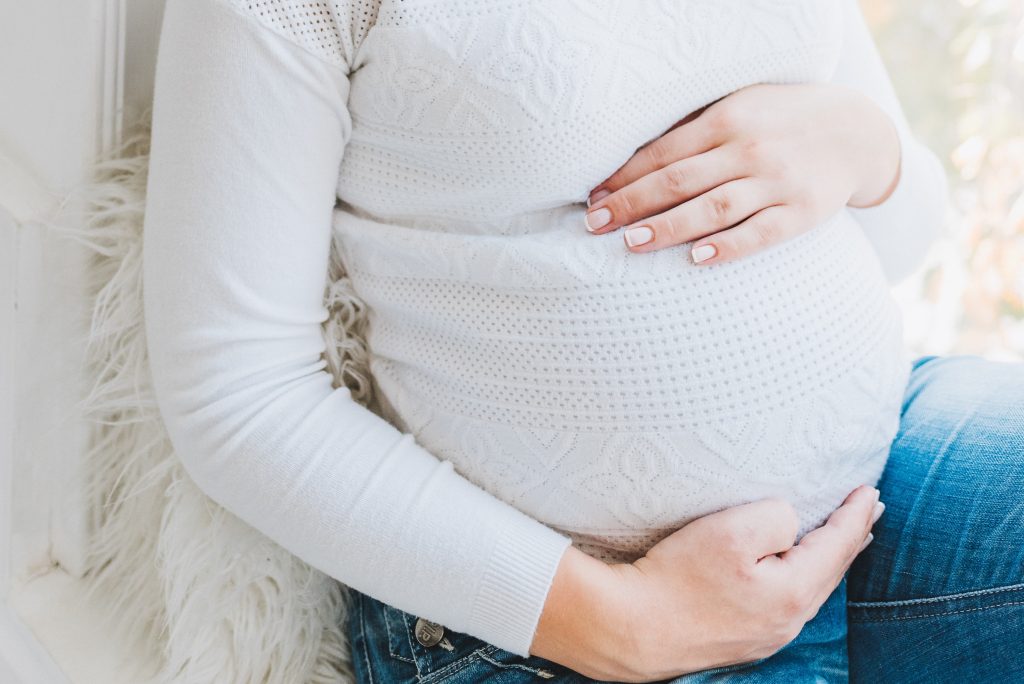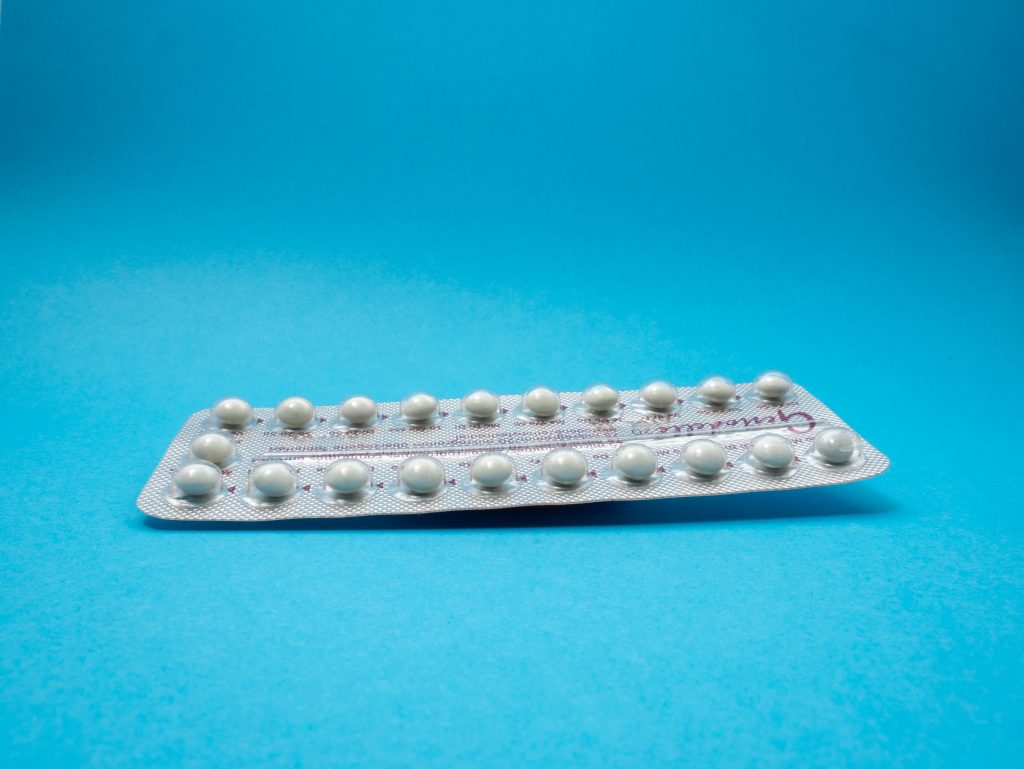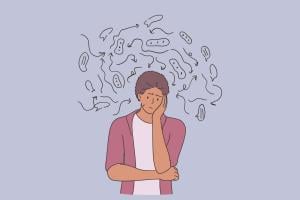

Women are at greater risk of developing depression than men, a difference that begins in adolescence and lasts until menopause. The timing of the difference between men and women suggests that there is vulnerability to depression when women are of childbearing age. There are several mental health conditions, such as premenstrual dysphoric disorder (PMDD) (Halbreich, 2003) and postpartum depression (PPD, discussed here by Mental Elf) (O’Hara and Swain, 1996), which suggest that fluctuations Hormonal changes could be a trigger for depressive episodes. These hormonal fluctuations can be caused by the menstrual cycle, having a baby, or taking hormonal contraceptives (Skovlund et al.2016).
Within the broader population of people with major depressive disorder (MDD), hormone-sensitive women may constitute a smaller subgroup that would benefit from more targeted treatments. However, what we do not know is whether depressive episodes throughout a woman’s life share the same biological basis; In other words, is depression related to the menstrual cycle the same or different from depression associated with having a baby? Few studies have investigated this and those that have are small in size and suffer from bias (Dennerstein et al.1988), which limits our ability to interpret their results in a useful way.
Larsen et al. We aimed to use data from the Danish registry to investigate whether women with a history of depression associated with hormonal contraceptive use were at increased risk of developing postpartum depression.

Postpartum depression occurs in up to 13% of new mothers and hormonal changes that occur around this time may be partially responsible.
Methods
The study employed a cohort design, including all women in Denmark after 1978 who gave birth to their first child between 1996 and 2017. Additional eligibility criteria were applied, generating a group of women eligible for analysis. Using statistical models that adjust for different characteristics between exposure groups, history of hormonal contraceptive-associated depression and no history of depression were compared with history of any other type of depression (exposures) to determine risk. of postpartum depression (the result). Several sensitivity analyzes were performed to test the robustness of the findings under different conditions.
Results
Of the 269,354 eligible women, the majority had used hormonal contraceptives before the birth of their first child. The study population included 188,648 first-time mothers, of whom 5,722 had experienced depression related to hormonal contraceptives (incidence rate of 3.0% in the population) and 2,457 developed postpartum depression (1.3%). Women with hormonal contraceptive-related depression experienced more depressive episodes than women with other types of depression (63.4% vs. 38.6% who had more than one episode).
Characteristically, those with both types of depression tended to be older and have a lower educational level than those without a history of depression. They had a higher body mass index (BMI) on average compared to those without depression and were more likely to have had a cesarean section. Missing data on BMI were less common among those with a history of any type of depression compared to those without a history of depression.
Women with a history of depression related to hormonal contraceptives had a 35% higher risk of postpartum depression than women who had experienced other types of depression in the adjusted models (odds ratio 1.35, 95% confidence interval: 1. 17 to 1.56). The model was adjusted for calendar year, maternal age at delivery, educational level at delivery, family history of depression, marital status, obstetric risk factors such as preterm birth, other psychiatric disorders, and medical indications for hormonal contraception such as abundant periods.
Findings from the primary analysis were robust across sensitivity analyses. The effect weakened somewhat in the sensitivity analysis where the exposure status was restricted to the first depressive episode, suggesting that the the risk was actually 19% higher for developing postpartum depression among those with a history of depression related to hormonal contraceptives.
Those who had no history of depression had an incredibly low risk of developing postpartum depression with an odds ratio of 0.23, suggesting an extreme protective effect of unlikely magnitude.

Women with a history of depression related to hormonal contraceptives had a 35% higher risk of postpartum depression than women who had experienced other types of depression.
Conclusions
The present study supports the hypothesis that women who have been sensitive to hormonal changes in the past, such as the initiation of hormonal contraception, may have an increased risk of prenatal and postpartum depression. The article contributes to emerging evidence that depressive episodes may be related to hormonal changes among a sensitive subpopulation of women with a history of depression. The mechanisms by which this might happen are still unclear. A recent study on twins points to a genetic component and another implicates hormones in serotonin signaling. These findings could help tailor approaches for women with depression caused by hormonal changes.

Women who have been sensitive to hormonal changes in the past may be at higher risk for both prenatal and postpartum depression. This may be due to several factors, including genetics or hormones involved in serotonin signaling.
Strengths and limitations
This study has several strengths, namely its size and duration. Extensive characteristic data were used to adjust the models to account for potential confounding biases, and registry data were collected prospectively with reference to exposure and outcomes.
There were also some limitations. The first is the intrinsic assumption that hormonal contraception increases the risk of depression in the population, but this was not verifiable at the individual level, that is, the The authors did not know unequivocally that a depressive episode was caused by the initiation of contraception in each patient..
Furthermore, those who suffered a depressive episode and did not use antidepressants or were diagnosed in a psychiatric clinic were not selected or included in the analysis. The magnitude of the protective effect conferred by not having previously had depression could be due, in part, to the fact that Some people are less likely to visit the doctor to talk about depression.. If people are less likely to report depression before pregnancy, they are probably also less likely to report postpartum depression. As the authors mentioned, those who did not start taking antidepressants or did not receive a diagnosis in a psychiatric clinic would have been overlooked. It is plausible that there are a substantial number of these patients in the “no history of depression” group, who would likely be less likely to seek medical help for postpartum depression if they developed it, inflating the protective effect of having no history of depression in Perinatal depression. /postpartum.
Overall, this was a careful, well-designed study with important findings for women of childbearing age who may be sensitive to hormonal changes in their depression.

This was a careful, well-designed study with important findings for women of childbearing age who may be sensitive to hormonal changes in relation to their depression.
Implications for Practice
There is increasing evidence supporting the contribution of hormonal changes to postpartum depression. Quantification of risk will inform future postpartum depression prediction models. The development of precision medicine that could emerge from these prediction models could lead to more targeted treatments for women with depression who are sensitive to hormonal changes. Ultimately, better and earlier identification of people at risk means better reproductive and obstetric care.
These findings may be useful to general practitioners. by highlighting which of your patients of childbearing age might need more support in the postpartum period. It may also inform decision-making about initiation or resumption of hormonal contraception during the postpartum period.
With reference to the implications for practice, These analyzes are purely associative and do not make any causal claims.. Ideally, we would need randomized controlled trials on hormonal contraceptive-related depression and postpartum depression to infer a causal effect in this case. Randomizing people to depression is not only unethical, it is impossible, so other methods, such as emulating targeted trials or reanalyzing data from RCTs on hormonal contraception, could be useful to triangulate (or gather ) evidence from different sources to infer causality.

These findings may help identify those at higher risk of postpartum depression in the early stages of their reproductive lives and provide them with more tailored support to their needs.
Declaration of interests
There is no conflict of interest to declare.
Links
primary job
Larsen SVMikkelsenAPØ LidegaardFrokjaer VG. Depression associated with the use of hormonal contraceptives as a risk indicator for postpartum depression. JAMA Psychiatry. 2023;80(7):682–689. doi:10.1001/jamapsiquiatría.2023.0807
other references
Halbreich U, Borenstein J, Pearlstein T, Kahn LS. The prevalence, impairment, impact, and burden of premenstrual dysphoric disorder (PMS/PMDD). Psychoneuroendocrinology. 2003;28(supplement 3):1-23. doi:10.1016/S0306-4530(03)00098-2
O’Hara MW, Swain AM. Rates and risk of postpartum depression: a meta-analysis. Int Rev Psychiatry. 1996;8(1):37-54. doi:10.3109/ 09540269609037816
Skovlund CW, Mørch LS, Kessing LV, Lidegaard Ø. Association of hormonal contraception with depression. JAMA Psychiatry. 2016;73(11):1154-1162. doi:10.1001/jamapsychiatry.2016.2387
Dennerstein L, Morse CA, Varnavides K. Premenstrual tension and depression: is there a relationship? J Psychosom Obstet Gynaecol. 1988;8 (1):45-52. doi:10.3109/01674828809016780







